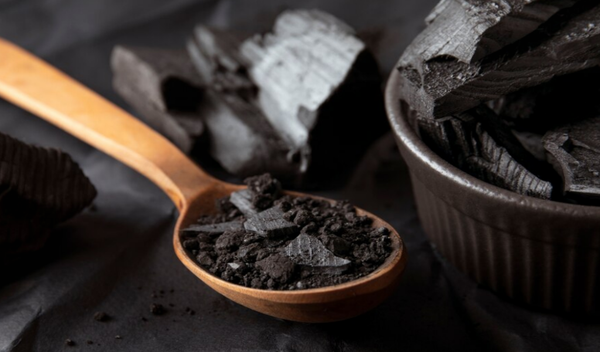Although it is present in modest amounts in females as well, testosterone is primarily thought of as a male sex hormone. It is mainly in charge of enhancing male fertility, producing sperm, and developing male traits. Testosterone levels in men are constant from birth; they rise during puberty and fall with age. The testicles produce and release testosterone, which is controlled by the hypothalamus and pituitary glands in the brain.
The hypothalamus - your body’s control and coordination center - releases gonadotropin-releasing hormones (GRH). This GRH then triggers the pituitary gland (a small pea-shaped gland located below the hypothalamus) to release Leutenizing hormones (LH). This LH then travels to the testicles and stimulates the production and release of testosterone. When testosterone levels rise beyond a certain threshold, the brain sends out a signal to the pituitary gland to stop its production.
Fact Check: Testosterone is a steroidal hormone that is synthesized from cholesterol. But high cholesterol levels may not necessarily mean high testosterone levels, as they are vigilantly monitored and controlled by the pituitary gland.
The Importance of Testosterone in Men
Testosterone is a major sex hormone in males that plays a number of vital roles. Some of which include:
● Early Puberty in Males
● Increase Muscle Mass
● Increase Stamina & Energy
● Increase Sports Performance
● Improves Libido
● Increases Bone Mass
● Regulates Fat Distribution
● Red Blood Cell Production
Factors Affecting Testosterone Levels in Men
Certain factors affect the levels of this hormone in men, like
● Heredity
● Diet
● Psychological issues (Stress, Anxiety, Depression)
● Social habits (Alcoholism, Smoking, Tobacco)
● Aging
Signs of Testosterone Decline

Although it is natural for testosterone levels to decline with age, if this happens too early or you face testosterone deficiency, you may be suffering from male hypogonadism. It is a condition in which the body’s sex glands (gonads) do not produce or produce fewer amounts of the hormone testosterone. While low testosterone may not always show up as a symptom, certain classical signs can indicate a drop in testosterone levels in men.
● Reduced Libido (Sexual desire)
There's a chance your testosterone levels are low if you haven't been feeling sexually motivated lately. While a progressive decline in sexual desire with age is common, experiencing a sharp decline in desire may be a sign of low testosterone levels. Testosterone has a vital role in controlling and synchronizing male sexual desires and arousal.
● Erectile Dysfunction
Finding it difficult to last longer in bed? This could be a sign of low testosterone levels. Testosterone helps in the production of a chemical known as nitric oxide. This nitric oxide is a vasodilator, which means it relaxes the muscles inside blood vessels, helping the blood flow through. Nitric oxide also increases blood flow to the brain, boosting its oxygen supply, which further facilitates sexual arousal.
However, not all erectile dysfunctions indicate low testosterone levels and may have other underlying causes.
● Gynecomastia
Also known as male boobs, gynecomastia is characterized by the enlargement of male breast tissues. It is often caused by an imbalance of testosterone and estrogen hormones in males. It usually gets resolved on its own, but hormone replacement therapy might also help. If there are other root causes, like certain medications or illnesses, then those need to be treated to get rid of this symptom. Surgical removal of this extra tissue can also be an option in some cases.
● Constant Fatigue
Feeling tired all the time? Maybe you need a testo boost. Testosterone helps your body produce healthy red blood cells, which supply oxygen to your body tissues. Low testosterone can thus cause anemia which may result in fatigue due to a lack of oxygen supply.
● Reduced Muscle Mass
Men with low testosterone levels may experience a loss in muscular mass. Testosterone increases muscle mass by increasing protein synthesis. More muscles would also mean more strength, energy, and stamina.
● Increased Fat Mass
The most stubborn fat in your body tends to be belly fat. It is the same fat responsible for setting you up for a number of metabolic diseases. Just like an unhealthy diet and sedentary lifestyle, low testosterone levels can be one of the prime factors in increased body fat, particularly belly fat. Low testosterone means lower muscle mass. Less muscle mass would mean a slower rate of fat breakdown, causing it to accumulate in the body.
Ways to Increase Testosterone
Before opting for any invasive treatments, you can try to boost your testosterone levels with a few simple home remedies.
● Change Your Diet:
Following a healthy diet has been positively linked with optimal levels of testosterone. Foods like healthy fats (oily fish, flaxseeds), good quality proteins (organic chicken, whey protein), complex carbohydrates (oats, brown rice), ginger, herbs like ashwagandha, zinc-rich foods (chickpeas, mushrooms), and magnesium-rich foods (wheat bran, dark chocolates), etc. seem to boost testosterone levels. These foods help by regulating hormones and lowering body fat, thereby enhancing testosterone levels. While, an unhealthy diet rich in sugar, sodium, and fats like burgers, pizza, cookies, chips, etc. causes inflammation and forces your body to produce excess insulin, which in the long term then develops into diabetes. Such diets were also shown to increase belly fat and decrease muscle mass. Excess insulin interferes with the production of testosterone, while excess inflammation due to junk food decreases testosterone levels, thereby contributing to male hypogonadism.
● Exercising Regularly:
Staying physically active and exercising regularly can give you a testosterone boost. A testosterone boost post-exercise is short-lived, but regular practice will not only enhance your testosterone levels but also keep unwanted fat/excess body weight, and other metabolic diseases under check.
● Destressing:
Research has shown that stressing over difficult and unpredictable tasks can cause a decline in testosterone levels. Activities like meditation, practicing yoga, and maintaining a gratitude journal can go a long way toward keeping your stress levels under control.
● Limiting Alcohol:
Excessive alcohol consumption affects the Leydig cells in the testis, which are responsible for testosterone production and secretion. Alcohol also decreases the production and secretion of luteinizing hormone (LH) and follicle-stimulating hormone (FSH), both of which are vital for testosterone production. Thus, it's important to limit your alcohol intake to maintain your testosterone levels.
● Adequate Sleep:
Maximum testosterone production takes place while you sleep. So if you are not catching up on sufficient sleep, you are also depriving your body of the time it needs for optimum testosterone production. Ensure adequate sleep to maintain normal levels of testosterone.
● Supplements:
Adding testosterone booster supplements to your daily routine is another effective way to boost your testosterone levels. Market shelves are loaded with supplements that claim to boost testosterone levels naturally. But if you want to pick the right one for you, look for those that contain natural extracts like Testofen®, Himalayan Shilajit, Ginkgo Biloba, Saffron, and Cordyceps Militaris. These ingredients work in synergy to boost your testosterone production, enhance performance, improve stamina, and even boost your mood.
Wrapping Up
Male hypogonadism or testosterone deficiency may not always manifest as symptoms; however, there are certain indicators. Men who identify with the majority of the aforementioned symptoms may be suffering from a lack of testosterone. Maintaining a healthy, stress-free lifestyle is always a good idea, whether or not you have low testosterone levels. If you are an athlete, experience fatigue, are over 40, or are about to turn 40, taking supplements can also help you increase your testosterone levels. Don't forget to speak with your doctor to better understand your problem and choose the appropriate supplements for it.
References
https://www.urologyhealth.org/urology-a-z/l/low-testosterone
https://www.health.harvard.edu/medications/testosterone--what-it-does-and-doesnt-do
https://my.clevelandclinic.org/health/articles/22002-androgens
https://medlineplus.gov/ency/patientinstructions/000722.htm
https://law.duke.edu/sites/default/files/centers/sportslaw/Experts_T_Statement_2019.pdf
https://www.sciencedirect.com/science/article/abs/pii/S0018506X11002212
https://www.ncbi.nlm.nih.gov/pmc/articles/PMC6765788/
https://onlinelibrary.wiley.com/doi/abs/10.1111/j.1365-2265.2005.02350.x
https://link.springer.com/article/10.1007/s11031-011-9264-3
https://www.medicoverhospitals.in/symptoms/testicular-atrophy
https://pubmed.ncbi.nlm.nih.gov/8273828/
https://draxe.com/nutrition/foods-that-boost-testosterone/


























